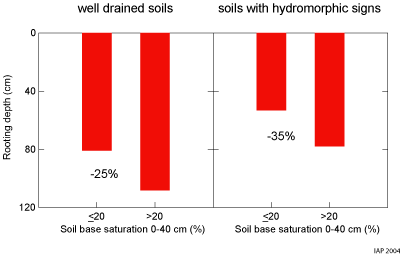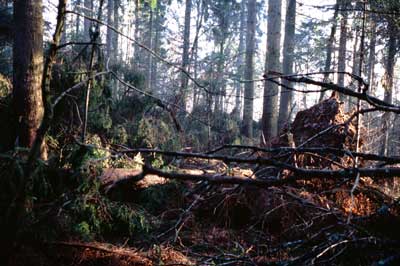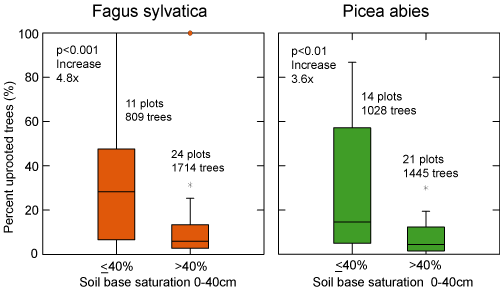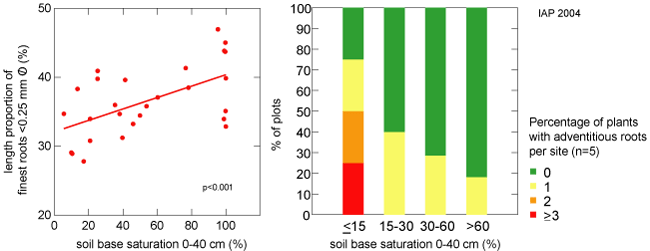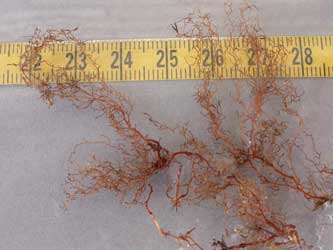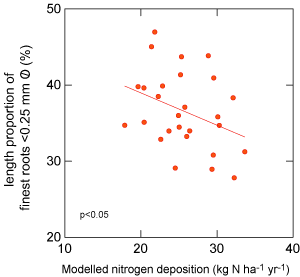Both soil acidification and nitrogen affect roots negatively. In soils with a low base saturation the rooting depth is decreased, with possible consequences for the mechanical stability. The proportion of trees which were uprooted by the gale "Lothar" was increased on soils with a low base saturation by a factor of 4.8 in beech and by a factor of 3.6 in Norway spruce.
